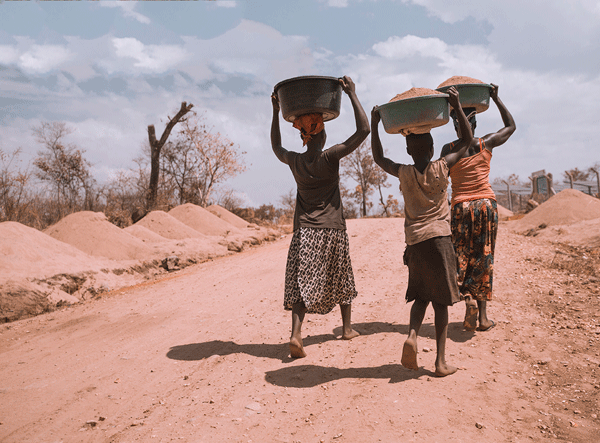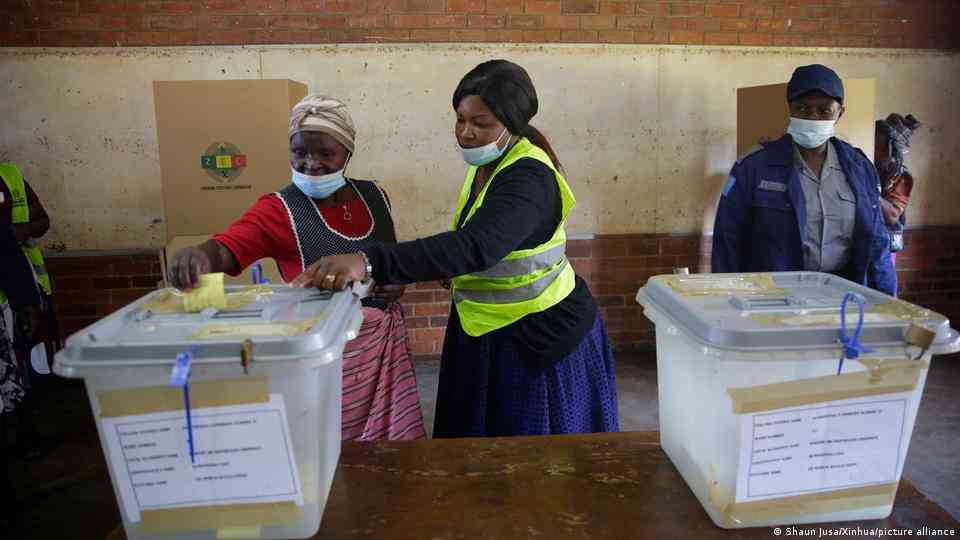
By Prisca Manyiwa WOMEN in Zhombe, Midlands province have raised a new climate change-induced phenomenon — a possible spike in domestic violence cases due to the looming drought in their area.
Zhombe is one of the districts worst affected by the dry spell which was experienced from the beginning of February to mid-March.
Speaking to NewsDay, Zhombe women expressed fears of a possible spike in domestic violence as families fight over the little available food stocks.
“We were happy that domestic violence cases had declined in our area because last year we had food in abundance.
“This year we have absolutely nothing in our fields, the crops dried at a very crucial stage because rainfall just stopped unexpectedly after we had applied top dressing fertilizer which needs water in abundance.
“The problem now is people will start fighting because of hunger,” said Miriam Serima, a legal resources volunteer in ward 9.
Zhombe is home to gold mines, thus when drought strikes men resort to artisanal mining to feed their families. However, women said artisanal miners were the biggest perpetrators of gender-based violence.
“In times like these, men turn to artisanal mining which is another biggest cause of violence against women because when they get money they go for other women or young women will abandon their homes and pursue artisanal miners to survive.
- Chamisa under fire over US$120K donation
- Mavhunga puts DeMbare into Chibuku quarterfinals
- Pension funds bet on Cabora Bassa oilfields
- Councils defy govt fire tender directive
Keep Reading
“We plead for government intervention to assist us with food so that we will not have broken families,” Serima said.
“Women will bear the brunt of this drought, we have seen this before and we are afraid that the situation has repeated itself,” Sarah Chauke said.
Ward 9 councillor Emmanuel Sibanda suggested rain-making rituals to curb erratic rainfall patterns in the future.
“We used to have rain-making ceremonies and things worked well for us, so I think we should go back to our cultural way of doing things because we have never seen this kind of drought.
“Of course, we complied with the Pfumvudza concept just like what we did last year, unfortunately this year we got nothing,” Sibanda said.
Zimbabwe Association of Church-Related Hospitals co-ordinator Pretty Ncube said they were engaging communities through the Speak Out campaign programme to address GBV cases.
“Drought is a serious contributor to gender-based violence because if there is no food at home men get frustrated and they take they frustration on women,”she said.
“Taking into consideration issues of power in the event of drought, some men refuse to sell cattle to buy food yet women and children will be starving. It even affects children.
“There are going to be food relief agencies and women are at risk of sexual exploitation so that they get food.
“In Zhombe we are in ward 9 with the Speak Out campaign programme where we are encouraging people to speak out against GBV,” Ncube said.
Farmers were optimistic that they will get a bumper harvest like last year. However, the effects of climate have disappointed them as all their resources have been washed down the drain due to the dry spell.
Meanwhile, Action 24 Zimbabwe, an organisation that specialises in climate and energy issues in the country has called on communal farmers to adopt smart agricultural practices to hedge themselves against recurrent droughts.
“There should be some focus at community level to promote water harvesting techniques which will in turn support irrigation facilities to ensure that in situations where we experience dry spells,irrigation could come in and assist to ensure that we have adequate water for our crops, said Action 24 Zimbabwe programme coordinator Archiford Chemhere.
He added: “The climate change management department has facilitated a climate smart agricultural manual booklet which details some of the water conservations, techniques and practices which can be adopted at community level.
“I would also encourage the agricultural extension officers and other responsible departments to ensure farmers engage in climate smart agricultural farming practices.
“Our organisation and others are also trying to educate and raise awareness of climate change within farmers and also try to urge farmers to adopt the smart agricultural practices and techniques, ensuring that farmers are applying conservation farming and ensuring that there is reduced reliance on fertilizers which demand more water for the crops.”
Chemhere called for more co-ordinated efforts among stakeholders in the fight against the effects of climate change.
“These are some of practical solutions which farmers can adopt in the face of climate change, but still a lot needs to be done in terms of the support which has to be rendered to the farmers from all stakeholders to make sure that there is funding to support these techniques in water harvesting, irrigation facilities, and also in the promotion of renewable energy technologies.
“There is need for a robust co-ordination among stakeholders and farmers,” he said.
- This story was produced under the WAN-IFRA Media Freedom African Media Grants initiative










